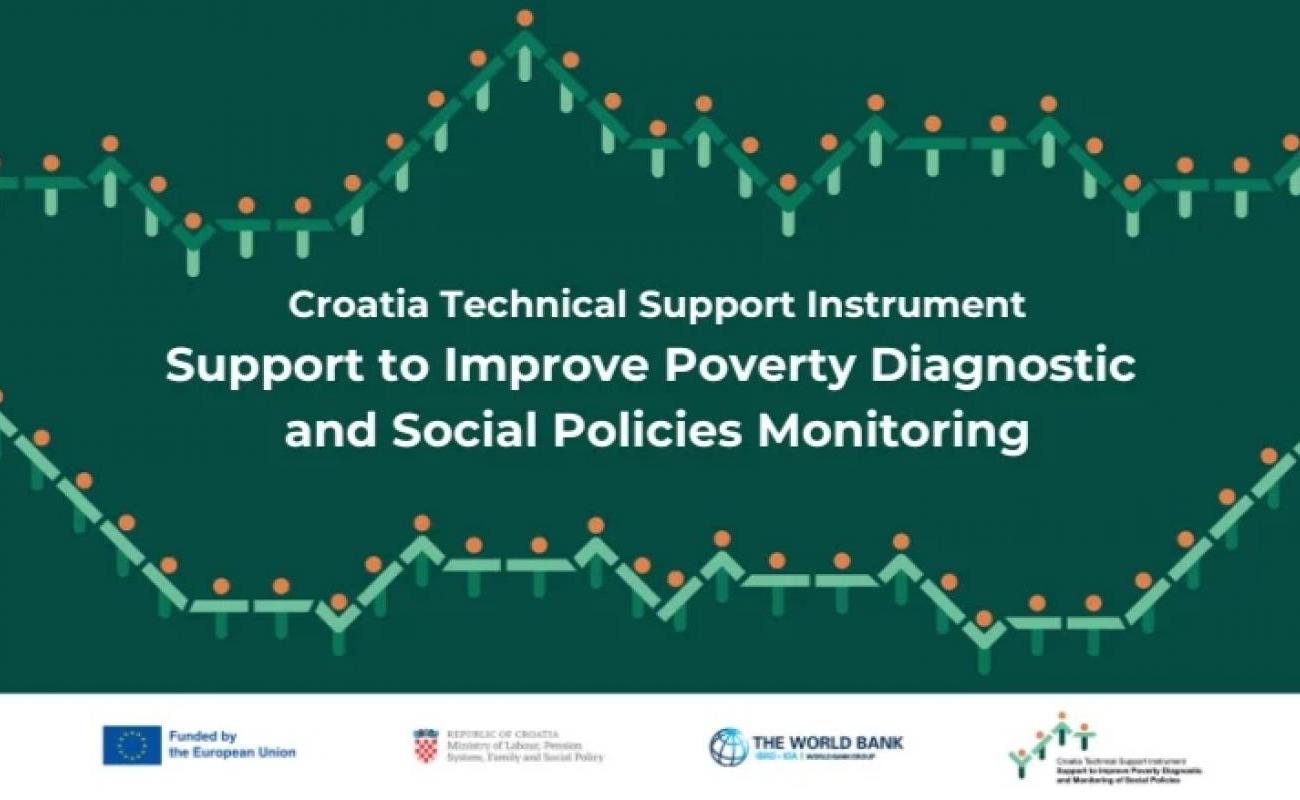Enhancing Mechanisms to Fight Poverty and Social Exclusion in Croatia

The Government of Croatia is committed to reducing the number of people at risk of poverty or social exclusion. To this end, the Ministry of Labor, Pension System, Family, and Social Policy (MLPSFSP) initiated an important project to build a modern comprehensive policy framework for the fight against poverty and social exclusion, founded on an evidence-based diagnostic of poverty and social exclusion at sub-national level.
The technical assistance Project - Support to Improve Poverty Diagnostic and Social Policies Monitoring, the results of which were presented during a two-day conference, focused on supporting the MLPSFSP in developing a practical methodology to effectively use subnational administrative data on poverty and social exclusion in Croatia. This will assist policymakers to make better informed decisions leading to improved policies and programs, how to allocate financial resources strategically, and how to improve the design of interventions that address the root causes of poverty and social exclusion. The project was funded by the European Union via the Technical Support Instrument (TSI) and implemented by the World Bank, in cooperation with the Directorate General for Structural Reforms of the European Commission (DG REFORM).
The activities under this project will have multiple benefits for all stakeholders.
Firstly, through getting a more granular picture of poverty and social exclusion at the subnational level, policy makers will be in a position to develop better targeted and more comprehensive social policies.
Secondly, an advanced monitoring and reporting system for the five national social strategic plans will enable the Government to implement evidence-based social policy, evaluate progress, to adjust its course of action as needed, and to demonstrate results.
And finally, enhanced stakeholder engagement mechanisms will ensure that everyone contributes to the social policymaking cycle - government institutions, social partners, academia, civil society, and beneficiaries themselves.
The event provided a platform to present and discuss the knowledge gains from this project, and to highlight the importance of these findings in the context of strategic planning and the use of EU funds. Participants, comprising representatives of the Ministry of Labor, Pension System, Family and Social Policy, Ministry of Finance, Ministry of Justice, Public Administration and Digital Transformation, State Geodetic Administration, Croatian Bureau of Statistics, Ministry of Regional Development and EU Funds, the European Commission, the World Bank, academia and civil society organizations, exchanged ideas on how to jointly enhance the implementation and sustainability of policy solutions identified as part of the project.
